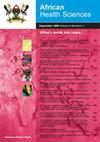Appropriateness and diagnostic yield of open access gastroscopy in two tertiary centers in South-western Nigeria
IF 0.9
4区 医学
Q3 MEDICINE, GENERAL & INTERNAL
引用次数: 0
Abstract
Background: There is need for the appropriate use of gastroscopy. Objective: To determine the appropriateness of upper gastrointestinal endoscopy, and its association with significant endoscopyfindings in our environment. Methods: This was a prospective study of subjects who underwent gastroscopy at two centers in south-western Nigeria betweenAugust 2020 and August 2021. Indications were classified as either appropriate or inappropriate according to the ASGE guidelines, gastroscopic findings as either significant or not significant, patients as either elderly (≥ 60 years) or not, inpatients or outpatients, and referrals as either gastroenterologist referral, or not. Results: There were 227 subjects, 131 (57.7%) females, mean age 45 ± 13.7 years. Fifteen percent were elderly, 65.6% were gastroenterologist referrals, 14.1% were inpatients, while 45.8% had co-morbidities. Endoscopy was appropriately indicated in 81.9%, and significant endoscopy findings were detected in 95.6%. Appropriateness was not associated with significant endoscopy findings. The sensitivity, specificity and AUROC of the ASGE guidelines were 10%, 82%, and 0.46 respectively. Conclusion: According to our study, most procedures are appropriately indicated. However, appropriateness did not determineendoscopy yield. Larger studies are needed to determine the utility of the ASGE guidelines in our environment. Keywords: Appropriateness; endoscopy; Nigeria.尼日利亚西南部两家三级医院开放胃镜检查的适宜性和诊断率
背景:需要适当使用胃镜检查。 目的确定在我们的环境中上消化道内窥镜检查的适当性及其与重要内窥镜检查结果的关联。 方法:这是一项前瞻性研究:这是一项前瞻性研究,对象是 2020 年 8 月至 2021 年 8 月期间在尼日利亚西南部两个中心接受胃镜检查的受试者。根据 ASGE 指南将适应症分为合适或不合适,胃镜检查结果分为有意义或无意义,患者分为老年(≥ 60 岁)或非老年,住院或门诊患者,转诊分为消化内科医生转诊或非消化内科医生转诊。 结果227名受试者中,女性131人(57.7%),平均年龄(45 ± 13.7)岁。15%为老年人,65.6%为消化内科医生转诊,14.1%为住院病人,45.8%有并发症。81.9%的患者接受了适当的内镜检查,95.6%的患者发现了重要的内镜检查结果。适当性与重要的内镜检查结果无关。ASGE指南的灵敏度、特异性和AUROC分别为10%、82%和0.46。 结论:根据我们的研究,大多数手术都有适当的指征。然而,适当与否并不能决定内镜检查率。需要进行更大规模的研究,以确定 ASGE 指南在我们的环境中是否有用。 关键词适当性;内窥镜检查;尼日利亚。
本文章由计算机程序翻译,如有差异,请以英文原文为准。
求助全文
约1分钟内获得全文
求助全文
来源期刊

African Health Sciences
MEDICINE, GENERAL & INTERNAL-
CiteScore
2.30
自引率
0.00%
发文量
179
审稿时长
>12 weeks
期刊介绍:
The African Health Sciences is an internationally refereed journal publishing original articles on research, clinical practice, public health, policy, planning, implementation and evaluation, in the health and related sciences relevant to Africa and the tropics. Its objectives are to: Advocate for and promote the growth of reading culture in sub Saharan Africa; Provide a high quality journal in which health and policy and other researchers and practitioners in the region can and world wide, can publish their work; Promote relevant health system research and publication in the region including alternative means of health care financing, the burden of and solution of health problems in marginalized urban and rural communities amongst the displaced and others affected by conflict; Promote research and the systematic collection and collation and publication of data on diseases and conditions of equity and influence; Promote development of evidence-based policies and guidelines for clinical, public health and other practitioners. African Health Sciences acknowledges support provided by the African Health Journals Partnership Project that is funded by the US National Institutes of Health (through the National Library of Medicine and the Fogarty International Center) and facilitated by the Council of Science Editors.
 求助内容:
求助内容: 应助结果提醒方式:
应助结果提醒方式:


